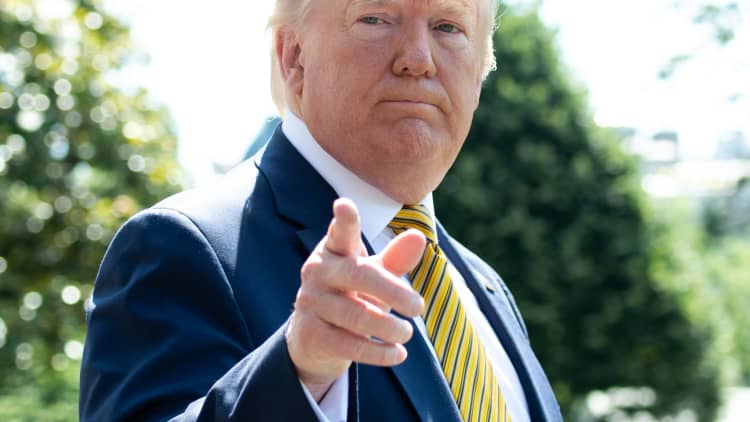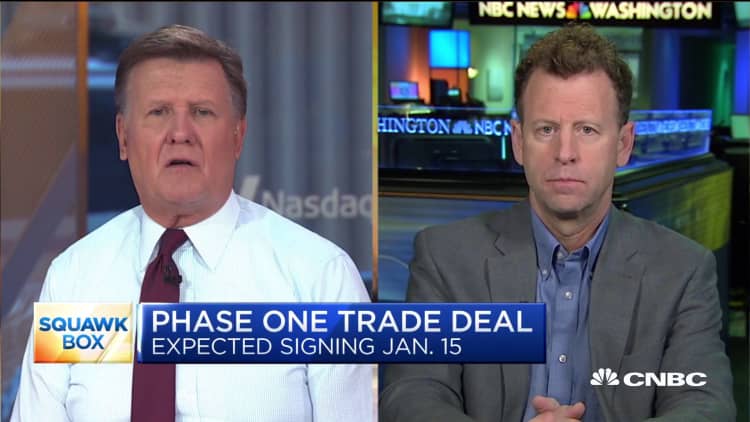President Donald Trump may not reach the second part of a trade pact with China until after the 2020 election, he said Thursday.
The president said his administration will start "right away" negotiating the next piece of an agreement after striking a so-called phase one deal. But he said "it'll take a little time" to finish an accord and suggested he could have more leverage after his reelection bid in November.
"I think I might want to wait to finish 'til after the election, because by doing that, I think we can actually make a little bit better deal, maybe a lot better deal," Trump told reporters at the White House.
The president and Chinese officials plan to sign a long-sought initial piece of a trade agreement on Jan. 15. The deal will involve some tariff relief, increased Chinese purchases of U.S. agricultural goods and changes to intellectual property and technology rules.

Trump has pushed for a trade agreement between the world's two largest economies as he tries to follow through on a 2016 campaign promise to crack down on China's trade abuses. But Thursday was not the first time he suggested he could wait until after voters decide whether he gets a second term to put together a full trade pact.
Only days before Washington and Beijing announced the first piece of the accord, Trump said, "In some ways, I like the idea of waiting until after the election for the China deal."
The president has tried to dial back a trade war that has threatened the livelihood of farmers and other business owners in the U.S. reliant on trade with China. Trump counts the agriculture industry as a key political constituency, and his administration has so far authorized $28 billion in relief for farmers.
During the trade war, the U.S. slapped tariffs on more than $500 billion in Chinese goods. Beijing put duties on more than $100 billion in American imports.
Investors, fearing a drag on economic growth, have cheered the U.S. and Chinese efforts to resolve the trade conflict.
WATCH: Phase 1 trade deal won't cost Chinese much, says policy expert



